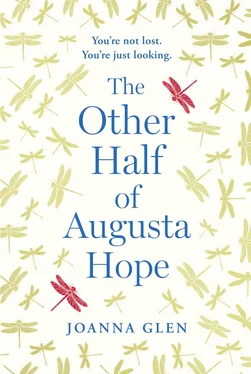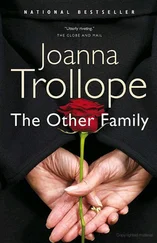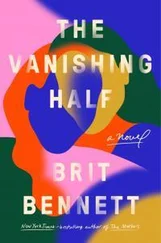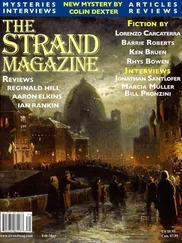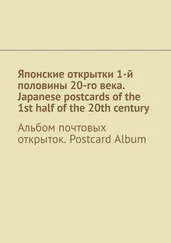But three months later, Julia’s prediction had not come true on account of the fact that there were weeds growing all over the front garden of number 13, which quite ruined the appearance of the crescent, and my mother felt that, if the Neighbourhood Watch man couldn’t say this to Lola Alvárez, who could?
My father was dispatched, but when he came back, he said it hadn’t quite come out how he meant it to.
‘Did you say anything at all?’ said my mother.
‘I said that an English man’s home is his castle,’ he said.
‘Well, I suppose that’s a start,’ my mother said.
‘I wondered if perhaps they don’t know the difference between weeds and flowers,’ said my father. ‘It’s probably different over there.’
He pointed towards the level crossing, as if Spain was behind the railway line.
‘Then I shall tell them the difference, Stanley,’ said my mother.
I was there, cringing, at her side, when she did so, patting her curly hair and going pink on her cheeks even though she had paley-cream make-up on.
‘ Your weeds are my flowers,’ Diego’s mother said to my mother, winking, with her hands in the pockets of her baggy dungarees, smiling in the way she had that made her eyes wrinkle up at the edges.
My mother never learnt to wink. Nor did she wish to. Neither did she have any understanding of dungarees for adults.
The weeds went on growing – white, blue, yellow and red – in the garden of number 13, and I loved the look of them.
Your weeds are my flowers – I am still thinking it years after.
I knew I was going to love Diego’s mother from the word go. Diego’s father, Fermín, was large and dark, a top scientist, who had come over to run the huge science laboratory out in the Tattershall Industrial Park. His mother had found a job teaching Spanish in the Sixth Form College in Hinton, and she wore her hair in plaits, with a rose fixed to each elastic. Fermín would pull her face towards him by holding her two plaits, and give her mouth-to-mouth kisses in the kitchen. I found this completely transfixing.
My mother used to lean back against the big wall of my father’s dark chest, and he’d put his arms around her, clasped together like a belt at the front. I knew that nothing bad could ever happen to us because he was here, and he would save us, whatever happened.
‘We all need a Saviour,’ he used to say, smiling at us.
‘No we don’t,’ Pierre would answer, and this pained my father, the way he loved to say no to everything.
But now a saviour was coming.
Not down to earth from heaven.
But over the border from Rwanda.
With the name, Melchior, like my father, like one of the three wise kings.
He was a Hutu, like us.
And this Hutu was going to be president of Burundi .
Although Hutu people weren’t presidents, not ordinarily, not ever so far.
I’ll never forget the day that Melchior Ndadaye took power. The hope we felt in our new Hutu president , a hope that blew in the smoke of a thousand fires cooking a thousand celebration chickens, rising above the conical roofs of our huts on the collines above Bujumbura.
‘We have a choice to love the Tutsi even if they’ve killed half the people we loved,’ my father told us. ‘We have a choice to love our neighbour.’
We nodded because we hated to disappoint our father.
‘And who is your neighbour?’ said our father.
‘Anyone God made,’ we said, all together, as we’d been taught. ‘Hutu, Tutsi or Twa.’
‘Hurray for the new president!’ said my father.
‘Hurray for the new president!’ we all echoed.
Little did we know that one hundred and two days later, men from the army – the president’s army – would come to kill their president. Little did we know that his thirty-eight palace guards would make no attempt to defend him.
In revenge, the Hutu massacred the Tutsi. Which, my father said, the president would not have wanted. The conflict cost three hundred thousand lives in the end, and one of those three hundred thousand was my father, who chose to turn the other cheek because, as he’d often told us, someone has to break the chain .
I was eight years old at the time.
I watched the fruit bats flying north in a big black cloud, and I knew I couldn’t bear to be here on the colline without him. Perhaps the bats would fly all the way up the continent of Africa to Europe – and perhaps I could go there too one day.
The countries of Europe were joining together to make one big happy continent. That’s what the Baptists said – and they should have known, being from England and France, themselves. Through the years that followed, in addition to clothes, they brought us second-hand paperback books and atlases and foreign-language dictionaries and old magazines, and I stayed up at night reading about this other world, extending my French vocabulary, learning English and the capitals of European countries.
I read about a pop band called the Spice Girls and a nun called Mother Teresa and a beautiful princess who died in a tunnel in Paris and a woman who spent eighty-one days rowing alone across the Atlantic Ocean.
So it obviously was possible, getting away to somewhere else, if you were brave enough.
I could take my whole family somewhere better. We could leave the colline , catch a boat up the lake, walk through Rwanda to the Democratic Republic of Congo, up through the Central African Republic into Chad, through Niger to Algeria, and then we’d reach Morocco, and I’d seen on the map that there was a tiny strip of sea, thin as a river. We could cross it by boat and go and live in the south of Spain.
Perhaps we would find a new life.
But the years passed, and we didn’t find a new life. Everything went on just the same.
Except something was about to change.
The one thousands were coming to an end.
We sat, all of us, on 31 December 1999, crouched on our haunches, our bare brown feet caked in red mud, looking expectantly over Lake Tanganyika, whose waters flowed over our borders and out beyond, imagining that something extraordinary might happen as we crossed over at midnight to the new millennium.
‘It’s the longest lake in the world,’ I said to my brothers and sisters, trying to copy my father’s jolly tone of voice, though the exact timbre of it was fading away from me, six years from his death. I found it hard to conjure it at night inside my head but I could still see his big wide smile and his twinkling eyes.
‘It’s the second deepest and the second largest, after Lake Baikal in Siberia,’ I said. ‘It holds 18 per cent of the world’s fresh water – and the fish in the lake are so special and so colourful that they are sold all around the world to rich men who like to keep them in glass boxes in their dining rooms.’
‘Do soldiers break in and smash the glass boxes?’ said Zion.
‘They don’t need soldiers in those countries,’ I said, authoritatively – I was fourteen years old now, my voice had broken and I was growing body hair. ‘No, these rich men live in peace.’
‘Peace?’ said Zion, creasing his brow.
And he and I walked across the hillside, looking up at the sky.
‘Let’s imagine that the clouds are boats,’ I said, crouching down and putting my arm around Zion’s shoulder, just as my father did with me when I was a little boy. ‘And let’s imagine that they’ll dip down to earth, Little Bro, and we’ll climb in, you and I. And, you know what? We’ll float right across the border of Burundi and way over the whole continent of Africa to the sea.’
‘Will we really?’ said Zion.
Читать дальше
